I often tell those outside the cannabis community that there is a reason “stoners are paranoid”—it’s because our government has literally been out to get us for the past 80yrs. So, that said, if you are worried sick about AZ’s Concentrates Crisis, you have every right to worry, but things should be all right. I know I have said “Cannabis Will Prevail” to a lot of people this week. And I absolutely mean it: language, science and timing are all on our side on this one. Be brave, don’t freak out or act out, and we will get this solved.
If you don’t have the details of why so many are freaking out, here’s the short version:
How We Got Here
Tuesday June 26th, an AZ appellate court, rendered a ruling in a Yavapai County case known as “State V Jones.” Rodney Jones had been facing a welter of charges following a 2013 arrest, and one of those was a felony cannabis narcotics charge. Arizona’s illicit drug schedule was written at the height of Nixon’s drug war in 1973. “Cannabis” was the word commonly used to refer to hashish, one of numerous possible preparations of “the resins” of marijuana. Most other currently popular forms of concentrated cannabis had not even been widely developed back then. So, “Marijuana” and “Cannabis” were listed as separate items in Arizona’s illicit drug list (ARS13-3401).
Fast forward through the medical marijuana breakthroughs of the 1990s to 2009 when the state of AZ is preparing to vote on cannabis for a 4th time (1996, 1998, and 2002) in the upcoming 2010 election. National cannabis political powerhouses, MPP (the Marijuana Policy Project) come to AZ to write the language of the 2010 initiative, the Arizona Medical Marijuana Act (AMMA). They fail to address the original ARS13- 3401 division between cannabis and its concentrates. In fact, MPP failed to address the “cannabis” question at all and only used the word once, identifying the species of plant as “cannabis sativa,” and then used the word marijuana 148 times. The concept of concentrated cannabis is thought to be covered under the definition of “USABLE MARIJUANA”– “THE DRIED FLOWERS OF THE MARIJUANA PLANT, AND ANY MIXTURE OR PREPARATION THEREOF, BUT DOES NOT INCLUDE THE SEEDS, STALKS AND ROOTS OF THE PLANT.” The initiative passes by less than 4200 votes.
In 2014, after repeated challenges from state and local officials, AZ’s cannabis industry finally gets up and running; and concentrates become an issue in the famous “Zander Welton Case,” where a pediatric patient is being treated w cannabis concentrates instead of smokable flower. (NOTE: Rodney Jones had already been arrested at that point, but his case wasn’t on the radar.) The Welton family win their lawsuit against the state and dozens of forms of concentrated cannabis products develop, eventually accounting for as much as 40% of industry revenues. The State of Arizona establishes administrative code on the manufacture and distribution of concentrated cannabis products as part of their enforcement of AMMA.
Cannabis cultivators begin selling only the best-looking buds for flower and “blasting” the rest of the “larf” (undersized buds in the plant’s undergrowth) into waxes, crumbles, oils and other forms of concentrated cannabinoids. These replace raw cannabis flower in edibles and become the basis for vape cartridges, topicals, capsules and all other cannabis products aside from raw flower and prerolls. With less wasted cannabis, companies are able to lower prices. The Welton case sets legal precedent, but, being a civil case, does nothing to challenge the criminal laws against “marijuana resins.”
In 2016, MPP comes back to AZ. Though their language for Prop205, the Arizona Marijuana Legalization Initiative, amply protects concentrates and regulates their production, on a dozen other issues it divides the cannabis activist community, leading to intense in-fighting and a separate initiative written to challenge the MPP ballot measure. When that initiative fails to qualify for the ballot, its supporters organize a “NO-Vote” campaign against Prop205. The initiative fails by more than fifty thousand votes.
In 2017, a mentally disabled MMJ patient gets stopped for speeding in Navajo County and local police find 9 grams of cannabis concentrates, “wax dabs,” in the vehicle. Unfamiliar w the product, the local authorities charge the patient w “Narcotic Cannabis Possession” and a local judge throws out his defense that the wax is covered by the AMMA. The defendants family contacts AZ-NORML. The case receives national coverage. A defense strategy is developed with the Arizona Cannabis Bar Association. An expert witness on cannabis science, Dr Hope Jones (no relation), gives scientific testimony as to why concentrated cannabis should be protected by the “any mixture or preparation thereof” clause in the AMMA. Working w AZ-NORML and the ACBA, Tucson State Representative Pam Powers-Hannley introduces legislation to amend both the cannabis definition and the concentrates protections, but the bill gains no traction.
In the process of working on the case in Navajo County, the AZ Cannabis Bar Association finally learn of the Jones case in Yavapai County. By this point, Jones has been convicted, his lawyer has appealed, and the case is already in the appellate deliberation stage, so none of their work can apply to aiding in the Jones case. In the spring of 2018, the Navajo County trial judge reversed himself and drops the narcotics concentrates charges. Once again, since the case did not go through criminal trial, no case law was established.
Which brings us up to June 26th. It may seem like an eon ago, but that was Tuesday.
In a split decision, an Arizona Appeals Court ruled that Jones’ medical card did not protect him from narcotics charges for his hashish, a concentrated cannabis product. Noting that the ARS13-3401 illicit drug list defines cannabis as: “(a) The resin extracted from any part of a plant of the genus cannabis … (b) Every compound, manufacture, salt, derivative, mixture or preparation of such resin or tetrahydrocannabinol,” the trial judge reckoned that the only forms of cannabis protected in AMMA’s “any mixture or preparation thereof” clause are limited to mixtures involving raw cannabis flowers and that every other “compound, manufacture, salt, derivative, mixture or preparation of such resin,” is not protected.
What All That Means?
Right now, the verdict in the Jones Case is the official interpretation of the criminal and MMJ statutes. Now that appellate level law has been set, technically all cannabis products other than marijuana flower or cigarettes (prerolls, joints, etc.) are illegal. Making matters worse, a strict interpretation suggests that even inadvertent collections of cannabis residue, like the keif in your grinder or the stain on your glassware is a violation. So, no tinctures, topicals, dab-ables, vape-ables, or edibles (aside from those based on raw flower). Both patients and industry people are vulnerable, but the chances are minimal, infinitesimal, that law enforcement will target random patients. Folks blatantly flaunting the law will put themselves at greater risk, but the majority patients should be safe while lawyers hash this out. Pun intended.
What Happens Next?
Right now, seriously, dozens of cannabis lawyers are earning their weekend overtime rates trying to figure out the best way to protect their clients, AZ’s cannabis companies, and by extension AZ’s 162,000 patients. In addition to individual industry lawyers working for their individual clients, the ACLU, the AZ Cannabis Bar Association, the Arizona Dispensary Association, the AZ Marijuana Industry Trade Association, the AZ Criminal Justice Association and AZ-NORML’s legal counsel, Tom Dean, are all working on solving this crisis. While I am not a lawyer myself and plans are shifting daily as each new industry/activist meeting syield new ideas, here is a layman’s summary of the expected legal strategy:
First Jones’ lawyer, Craig Williams of Prescott will have to file a motion to stay the judgement while he appeals the case to the State Supreme Court. During that process, the law groups listed above will coordinate to file amicus briefs (their official opinions on the case). If the Supreme Court accepts the case, this process will most likely take the better part of a year. Expected challenges center around the “Mixture or Preparation” phrase in AMMA, the Welton precedent, and the DHS administrative rules regarding concentrates, which have the force of law. During that time, AZ will hold midterm elections and the 2019 legislative session will have new eyes to address the problem. I spoke w Rep Powers-Hannley today, and she is as committed as ever to solving the problem once and for all during the next legislative session, which starts in January. If they take up the issue, the earliest we could expect a result is late April/early May of 2019.
If the Supreme Court does not accept the Jones Case? Well … then local jurisdictions will have free reign to prosecute the law according to how they see fit. If that occurs, expect an attempted crack-down by prosecutors like Yavapai County’s Sheila Polk and Maricopa County’s Bill Montgomery. Pima County could also be a target based on prosecution strategies these counties have pursued since AMMA took effect. At that point, once another patient or company is arrested and charged, the legal challenges listed above will be brought up at the trial court level and will need to go to appeal and be upheld before the matter is resolved. Then … THAT process will take upwards of a year.
I opened this article by explaining that everything will be all right in the end. I did not say it would be quick or easy.
Our Advice
If you work in the industry, you have already heard rumors that DHS is saying they are not making sudden changes and will inform everyone if they revise their rules. That is true. It is important to remember DHS has created and enforces the existing rules on concentrates. Technically it is entrapment if they should try to arrest you for following the law. As long as you are operating compliantly, you should be safe.
If you are a patient, remember that it is your choice to consume cannabis. Despite various state-level protections, it is still against federal law. You are making a conscious choice to break federal law each time you shop or possess. The decision to use or not use concentrates is again your choice. Many dispensaries are withdrawing their concentrate product for the time being until the situation is clearer. But they have not been ordered to do so and until DHS announces otherwise, some will continue to manufacture and sell these products. Many patients (pediatric patients for example) must have concentrates and it would be hazardous for them if they had no legal outlet. This risk is similar to violating federal law and it is a choice each patient or parent must make.
If you should choose to continue using concentrate products (I know I am), here are the same reminders we always give:
- Be aware of your surroundings when consuming.Though it is true 94% of Americans support the concept of medical marijuana, only about 10% of the population are actual cannabis users. It provokes strong feelings, both positive and negative. While it is your right to consume cannabis as medical patient, it is also important that you respect the rights of others around you and recognize their potential prejudice against it. Even with a medical card, it is illegal to “smoke” in public, while driving, or on government property. Vaping, while less obvious, is also a risky choice. The words “in public” essentially mean anywhere outside a private residence or private club. If you must consume cannabis outside your personal property, be aware of others around you.
- Do not consume cannabis in your car. CannabisDUI is a national concern and likely to remain that way. No matter what the research says about cannabis and driving, smoking and operating a motor vehicle (car, plane, or boat) is strictly illegal in every state in the US. Just say “No.” Just say, “It can wait.” Smoking cannabis in a car, even cautiously, will in time permanently create a “weed smell,” and vaping is more obvious than one might think, especially in city traffic. In either case, law enforcement can use the odor of cannabis or the sight of a vape cloud as probable cause for a lengthy, stressful roadside search and possible arrest. This is the most important step you can take to protect yourself from police.
- Travel Compliantly.In case you are stopped by police, it is critical that your vehicle does not invite further scrutiny. Throw away any empty cannabis containers and cannabis related materials, keep paraphernalia tucked away at all times. When returning from a dispensary, keep your purchases in the original, sealed dispensary bag. Do not even remove the staple until you get to your destination. When traveling, keep your cannabis in its original dispensary packaging and inside an inaccessible container, such as a suitcase or computer bag in the back seat or trunk. The idea is to reassure the police that you have not been consuming in the car. Remember, even when traveling between states where cannabis is protected, it is federally illegal to transport cannabis across state lines. While your marijuana card can be part of an affirmative defense in other medical states, it provides no protection in states without a medical program. DO NOT TRAVEL WITH MORE THAN YOUR 2½ OUNCE ALLOTMENT.
- If you are stopped by police. Many of the cannabis cases we see occur because of the way some patients conduct themselves when during a traffic stop. Remember law enforcement responds to politeness. They also respond to nervous, deceptive, or defiant behavior. If you are stopped, address the officer respectfully. Pay attention to their requests, but do not risk incriminating yourself by volunteering more information than requested. Remember to limit what you say to the minimum necessary to answer their questions. If you are asked about marijuana, immediately volunteer your medical card, but again, do not over-volunteer unnecessarily. Even with a medical card you may be asked to show the officers your cannabis, so they can confirm you are not traveling with more than your allowed amount. Again, provide only what is asked and do not talk about cannabis more than is required. Do not rush the police or appear impatient or worried, but after you have provided any information they asked for, you can ask, “Officer, am I free to go?”
If the worst happens, Contact us.
Arizona cannabis patients have support from two great organizations that are committed to helping you if you are arrested or charged. Arizona-NORML is the clearinghouse for all marijuana issues. They can refer you to lawyers in your area and give you an idea of what you can expect. Their hotline number is 928-234-5633. The state director is Mikel Weisser and you can email him directly at mikelweisser@gmail.com. The Arizona Cannabis Bar Association is an organization of attorneys devoted to cannabis law. The association email is azcannabar@gmail.com. Their president is Gary Smith. His office number is 602-888-9969.
What Can You Do Now?
In addition to attending public meetings about this issue and keeping yourself informed, you can be sure to spread the news to others, both in person and on social media. Create your own public forums in your neighborhood to discuss the matter. We can help you get one organized. Contact your elected officials at any and every level. To your state officials and legislators, insist they correct this problem immediately, if not through an emergency legislative session, then in January when the legislature resumes. Contact the office of Rep Pam Powers-Hannley to discuss ways you can help her office advance the legislation necessary to correct this grievous error. At your local level contact the mayor, city council and local law enforcement and call for their commitment to NOT prosecute concentrates case.
Please contact me if there are other questions you need answered or even if you just want some reassurance. Breathe in, breathe out, don’t act the fool, don’t turn on each other in the panic. Believe you are on the right side of history, medicine and ultimately the law, no matter what misreading we are currently dealing with.
#ConcentratesAreNotaCrime #CannabisWillPrevail
Author: Mikel Weisser State Director Arizona NORML

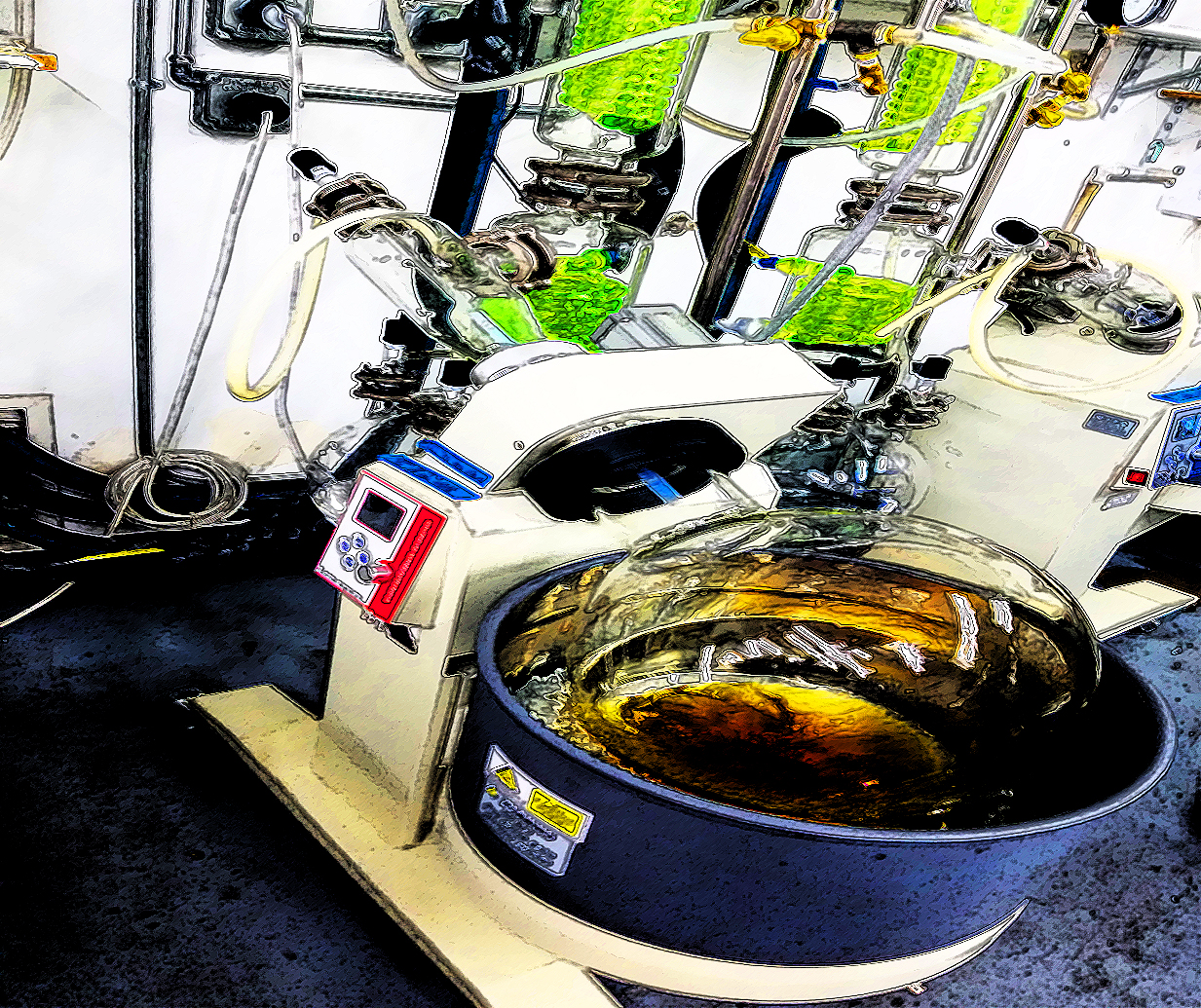
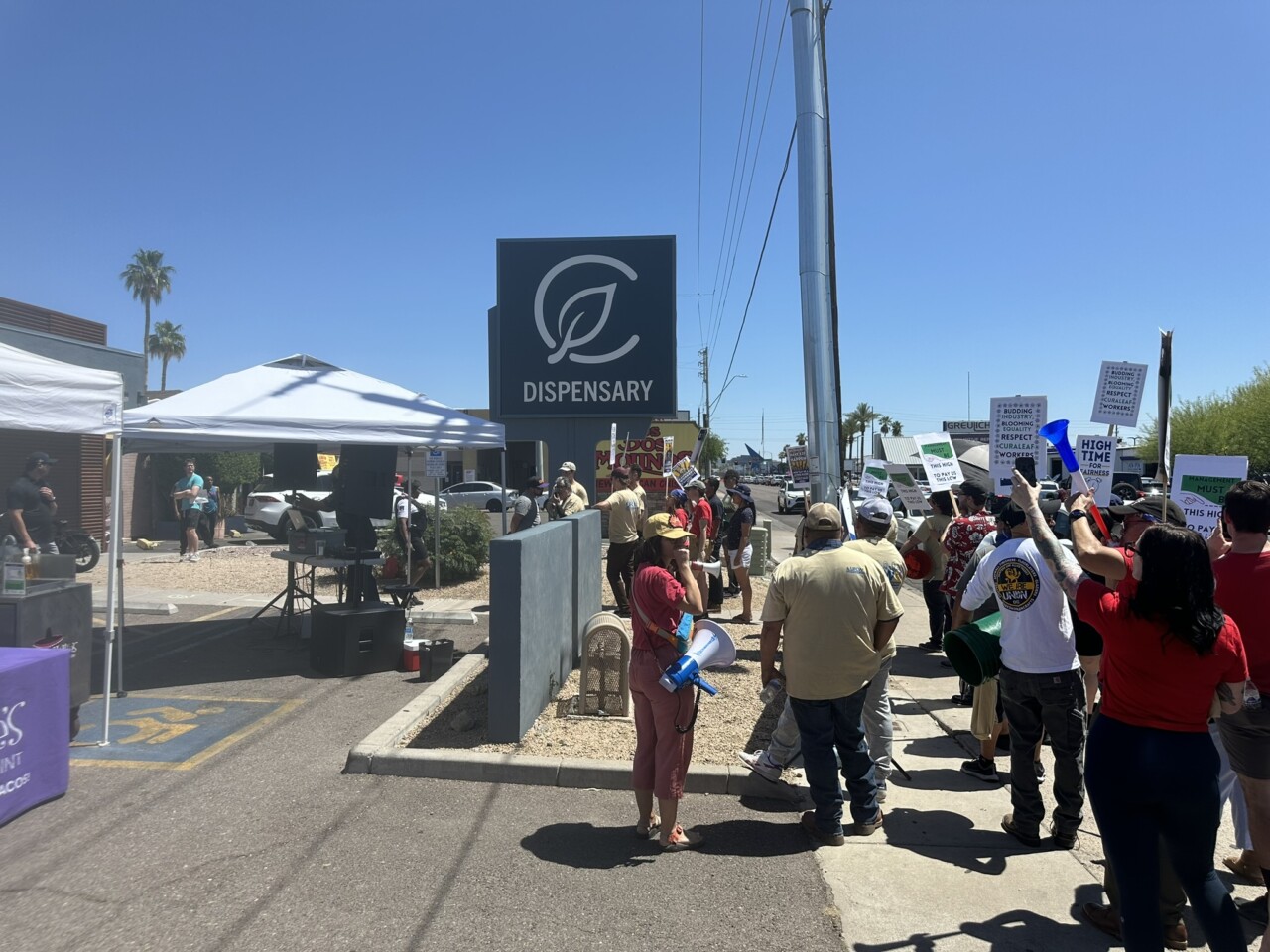


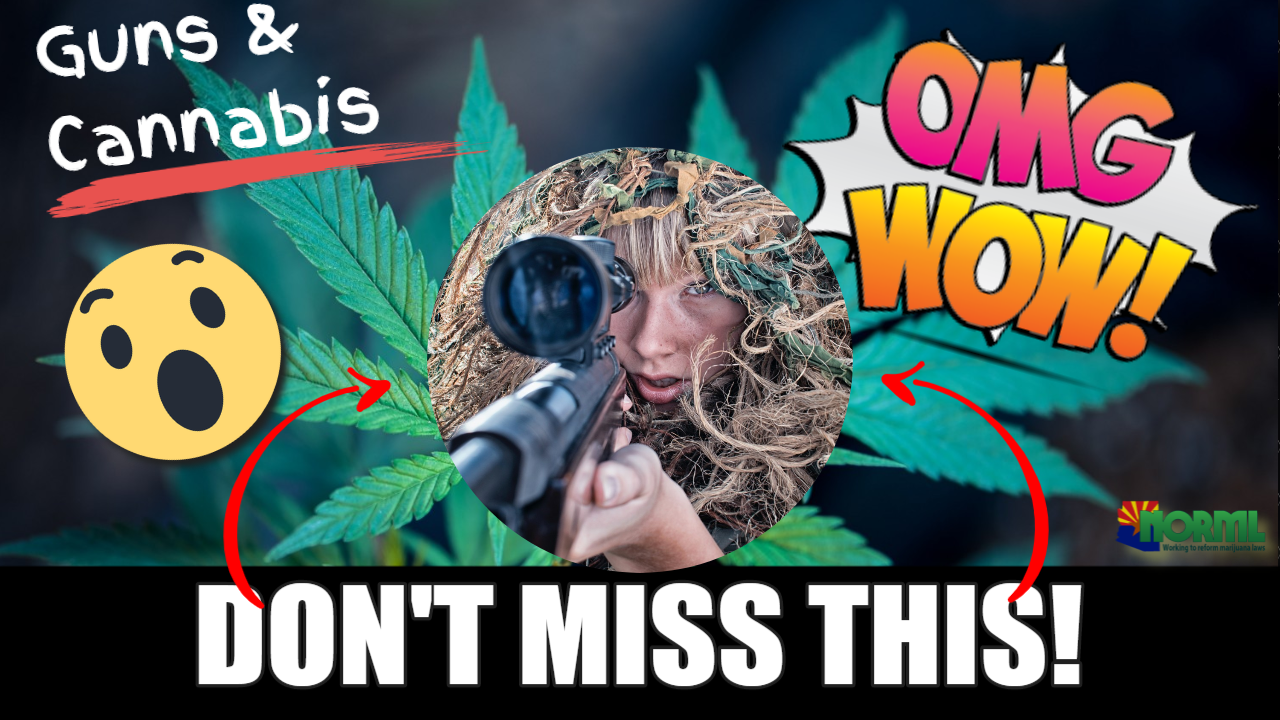
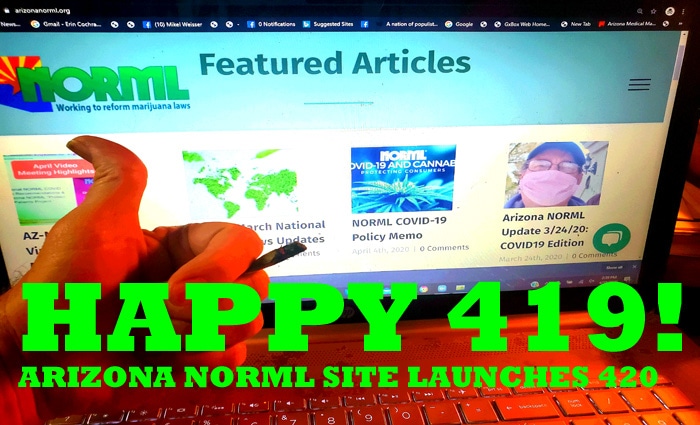
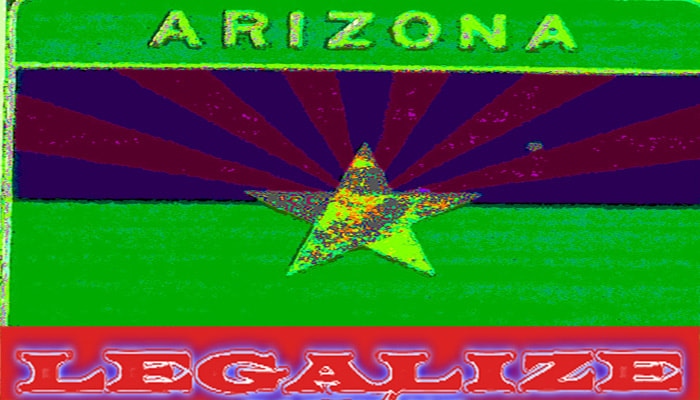
Leave A Comment
You must be logged in to post a comment.